Results
-
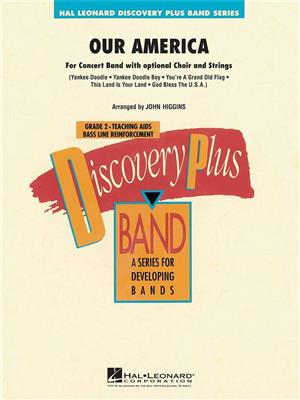 £57.50
£57.50Our America (for Band with Optional Choir)
Here is an inspiring medley of patriotic favorites specially written for band and choir. Although ideal as a combined concert number for your entire music department (opt. string parts are also available), it has been carefully arranged to work with band alone. Includes: This Land Is Your Land, You're a Grand Old Flag, Yankee Doodle Boy and God Bless the U.S.A. (4:00) Also available: 08551843/3-part mixed; 08551844/2-part; 04490488/String Pak; 08551845/VoiceTrax
Estimated dispatch 7-14 working days
-
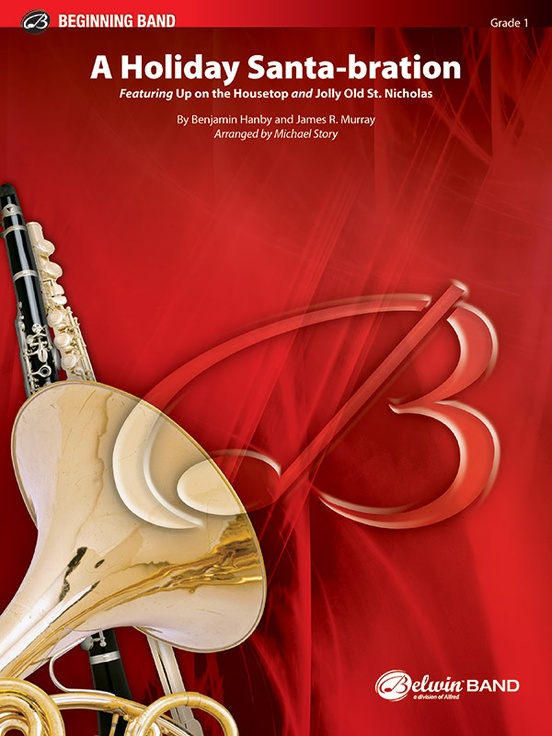 £53.95
£53.95A Holiday Santa-bration (Concert Band - Score and Parts) - Hanby & Murray - Story, Michael
A Holiday Santa-bration, arranged by Michael Story, is the perfect holiday selection for your beginning band. It includes two popular Christmas songs, Up on the Housetop and Jolly Old St. Nicholas. This arrangement can be performed with even or swinging eighth notes, it is equally effective!Duration: 2.00
Estimated dispatch 7-14 working days
-
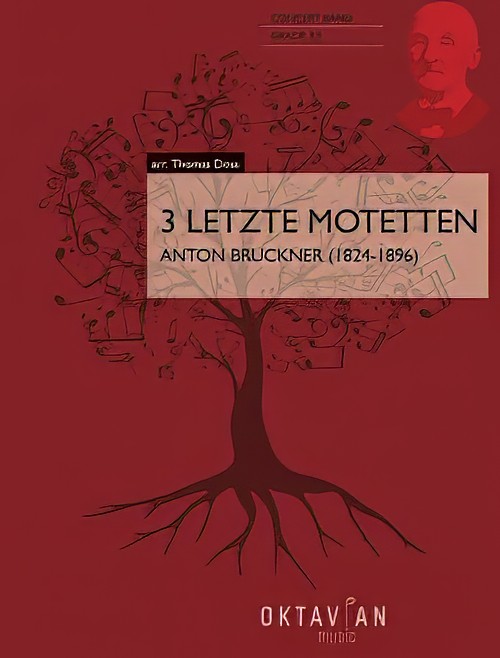 £123.20
£123.203 Letzte Motetten (Concert Band - Score and Parts) - Bruckner, Anton - Doss, Thomas
Anton Bruckner (b. 4.9.1824, Ansfelden, d. 11.10.1896, Vienna) didn't have it easy. Throughout his life, the Austrian composer was plagued by self-doubt. Anton Bruckner came from a simple, rural background. After the death of his father, he was accepted as a choirboy at the monastery of Sankt Florian in 1837. After several years as a school assistant and his own organ and piano studies, he first worked as organist in St. Florian, then from 1855 as cathedral organist in Linz. Introduced to music theory and instrumentation by Simon Sechter and Otto Kitzler, he discovered Richard Wagner as an artistic role model, whom he admired throughout his life and also visited several times in Bayreuth. In 1868 Anton Bruckner became professor of basso continuo, counterpoint and organ at the Vienna Conservatory; ten years later court organist; and in 1891 finally honorary doctor of the University of Vienna. He was considered an important organ virtuoso of his era, but had to wait a long time for recognition as a composer. It was not until Symphony No.7 in E major, composed between 1881 and 1883, with the famous Adagio written under the effects of Wagner's death, that he achieved the recognition he had hoped for, even if he was reluctant to accept it given his inclination towards scepticism and self-criticism. Anton Bruckner was a loner who did not want to follow a particular school or doctrine. He composed numerous sacred vocal works, such as his three masses, the Missa Solemnis in B flat minor (1854), the Te Deum (1881-84) and numerous motets. As a symphonic composer, he wrote a total of nine symphonies and many symphonic studies from 1863 onwards, tending to revise completed versions several times over. Bruckner's orchestral works were long considered unplayable, but in fact were merely exceptionally bold for the tonal language of their time, uniting traditions from Beethoven through Wagner to folk music, on the threshold between late Romanticism and Modernism. Anton Bruckner composed about 40 motets during his lifetime, the earliest a setting of Pange lingua around 1835, and the last, Vexilla regis, in 1892. Thomas Doss has compiled some of these motets in this volume for symphonic wind orchestra. These motets show many characteristics of personal expression, especially Bruckner's colourful harmony in the earlier works, which is in places aligned with Franz Schubert (changes between major and minor; and movements in thirds). Later works are characterised by many components which, in addition to the expanded stature of the movements, include above all a sense of the instrumentation as an outward phenomenon and the harmony as a compositional feature that works more internally. Some aspects of Bruckner's work are the result of his long period of study, which familiarised him not only with the tradition of his craft, but also gave him insights into the "modernity" of his time in such composers as Wagner, Liszt and Berlioz. From this developed his personal standpoint, which always pursues the connection between the old and the new.Duration: 14.00
Estimated dispatch 7-14 working days
-
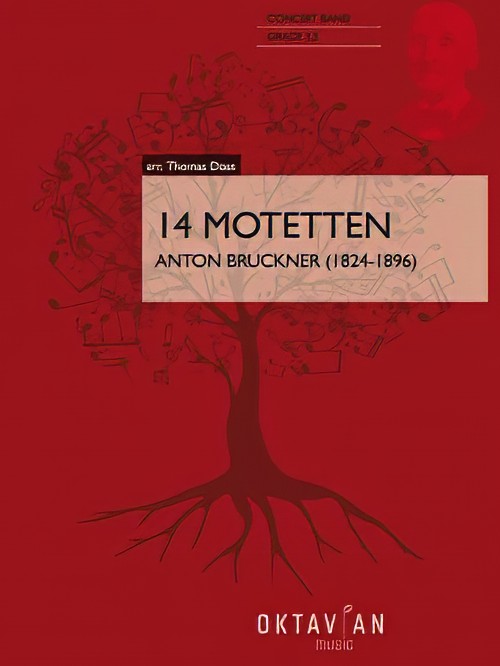 £256.00
£256.0014 Motetten (Concert Band - Score and Parts) - Bruckner, Anton - Doss, Thomas
Anton Bruckner (b. 4.9.1824, Ansfelden, d. 11.10.1896, Vienna) didn't have it easy. Throughout his life, the Austrian composer was plagued by self-doubt. Anton Bruckner came from a simple, rural background. After the death of his father, he was accepted as a choirboy at the monastery of Sankt Florian in 1837. After several years as a school assistant and his own organ and piano studies, he first worked as organist in St. Florian, then from 1855 as cathedral organist in Linz. Introduced to music theory and instrumentation by Simon Sechter and Otto Kitzler, he discovered Richard Wagner as an artistic role model, whom he admired throughout his life and also visited several times in Bayreuth. In 1868 Anton Bruckner became professor of basso continuo, counterpoint and organ at the Vienna Conservatory; ten years later court organist; and in 1891 finally honorary doctor of the University of Vienna. He was considered an important organ virtuoso of his era, but had to wait a long time for recognition as a composer. It was not until Symphony No.7 in E major, composed between 1881 and 1883, with the famous Adagio written under the effects of Wagner's death, that he achieved the recognition he had hoped for, even if he was reluctant to accept it given his inclination towards scepticism and self-criticism. Anton Bruckner was a loner who did not want to follow a particular school or doctrine. He composed numerous sacred vocal works, such as his three masses, the Missa Solemnis in B flat minor (1854), the Te Deum (1881-84) and numerous motets. As a symphonic composer, he wrote a total of nine symphonies and many symphonic studies from 1863 onwards, tending to revise completed versions several times over. Bruckner's orchestral works were long considered unplayable, but in fact were merely exceptionally bold for the tonal language of their time, uniting traditions from Beethoven through Wagner to folk music, on the threshold between late Romanticism and Modernism. Anton Bruckner composed about 40 motets during his lifetime, the earliest a setting of Pange lingua around 1835, and the last, Vexilla regis, in 1892. Thomas Doss has compiled some of these motets in this volume for symphonic wind orchestra. These motets show many characteristics of personal expression, especially Bruckner's colourful harmony in the earlier works, which is in places aligned with Franz Schubert (changes between major and minor; and movements in thirds). Later works are characterised by many components which, in addition to the expanded stature of the movements, include above all a sense of the instrumentation as an outward phenomenon and the harmony as a compositional feature that works more internally. Some aspects of Bruckner's work are the result of his long period of study, which familiarised him not only with the tradition of his craft, but also gave him insights into the modernity of his time in such composers as Wagner, Liszt and Berlioz. From this developed his personal standpoint, which always pursues the connection between the old and the new.Duration: 39.00
Estimated dispatch 7-14 working days
-
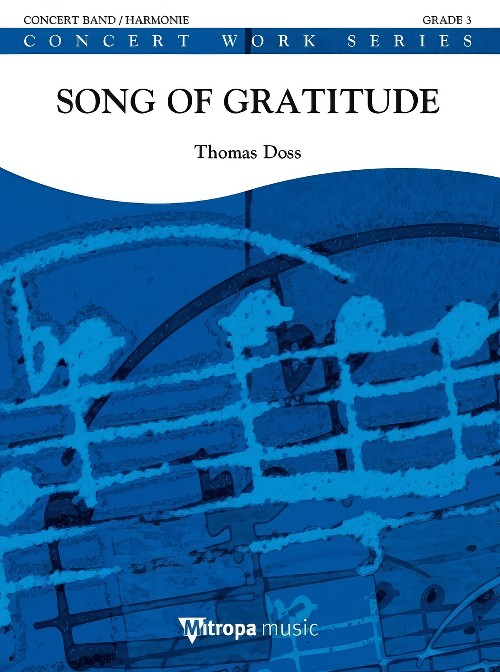 £69.99
£69.99Song of Gratitude (Concert Band - Score and Parts) - Doss, Thomas
Song of Gratitude was written for an old friend. Many friendships that start off at a young age last for life and thus form a sort of connecting thread throughout one's existence. In this particular work, this notion is mirrored in a short motif that expands more and more and becomes more passionate until it finally settles down in a thankful closing passage. Duration: 4.00
Estimated dispatch 7-14 working days
-
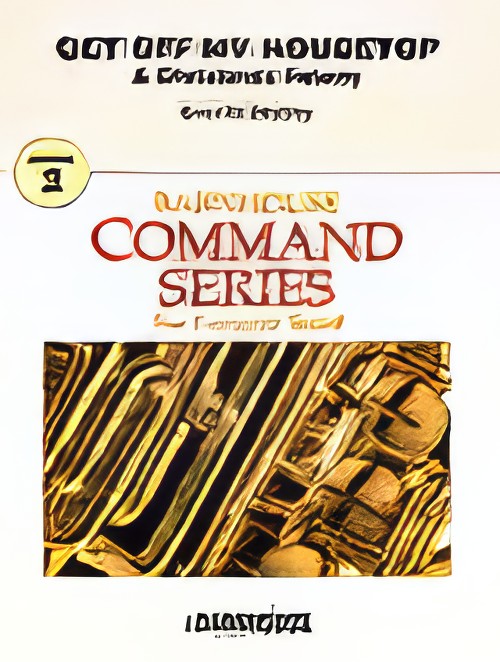 £59.00
£59.00Get Off My Housetop (A Christmas Felony) (Concert Band - Score and Parts) - Bradley, Evan W.
Get Off My Housetop - A Christmas Felony provides a new and somewhat twisted musical perspective on the concept of Santa Claus. When we review all the lore surrounding St. Nick, it is easy to interpret him and his job as kind of creepy. This student-approved arrangement uses "Up On the Housetop" and "Jolly Old St. Nicholas" - along with a host of fun percussion effects - to offer some new thoughts on Santa. You've never played a Christmas piece quite like this before! Duration: 2.30
Estimated dispatch 7-14 working days
-
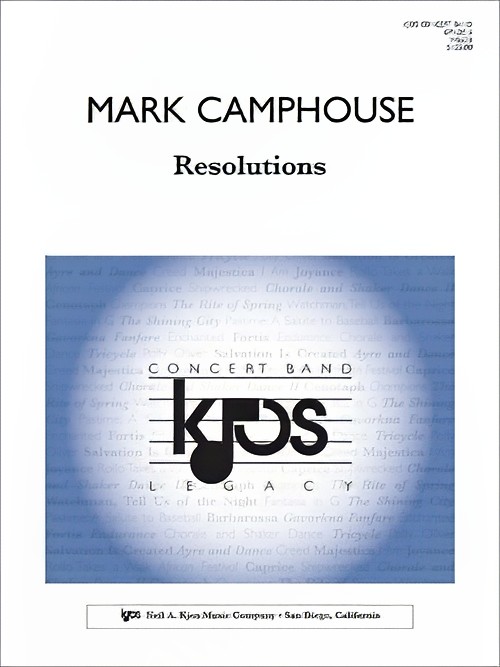 £125.00
£125.00Resolutions (Concert Band - Score and Parts) - Camphouse, Mark
Resolutions has a double meaning embedded in its title: musical resolutions (dissonance resolving to consonance), and political resolutions as found in the words written by American patriot George Mason. Composer Mark Camphouse skillfully weaves old American tunes into his signature rich tapestry of sound in this work for advanced concert band.
Estimated dispatch 7-14 working days
-
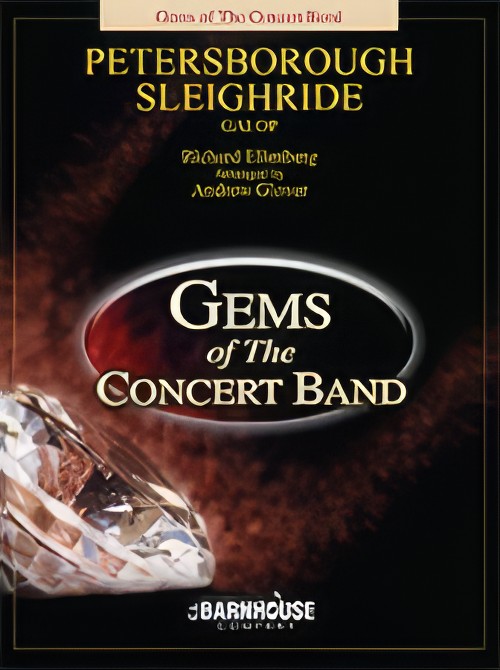 £69.00
£69.00Petersborough Sleighride (Concert Band - Score and Parts) - Eilenberg, Richard - Glover, Andrew
Are you tired of the same old sleigh ride? Then jump aboard the "Petersborough Sleighride," a delightful work which depicts a horse-drawn trek through the wintry backroads. A noted favorite of European salon music, this charming piece will be a favorite of your winter concert - or even summer concerts, to help cool off your audience! Listeners will smile and tap their feet as this music paints a picture of a wintery romp through the snow. Irresistible! Duration: 3.00
Estimated dispatch 7-14 working days
-
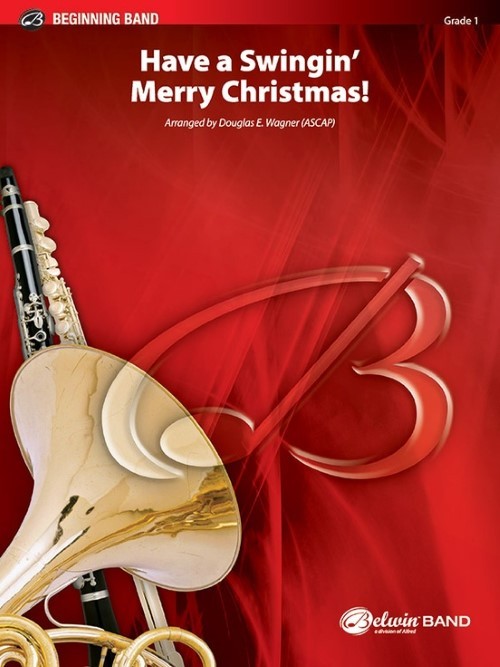 £51.50
£51.50Have a Swingin' Merry Christmas! (Concert Band - Score and Parts) - Wagner, Douglas E.
Incorporating "Deck the Halls" and "Jolly Old Saint Nicholas" with a hat tip to "Jingle Bells," this beginning medley helps teach basic swing style. It never feels like Christmas until the music starts playing, and this is sure to put a smile on Santa's face!Duration: 1:45
Estimated dispatch 7-14 working days
-
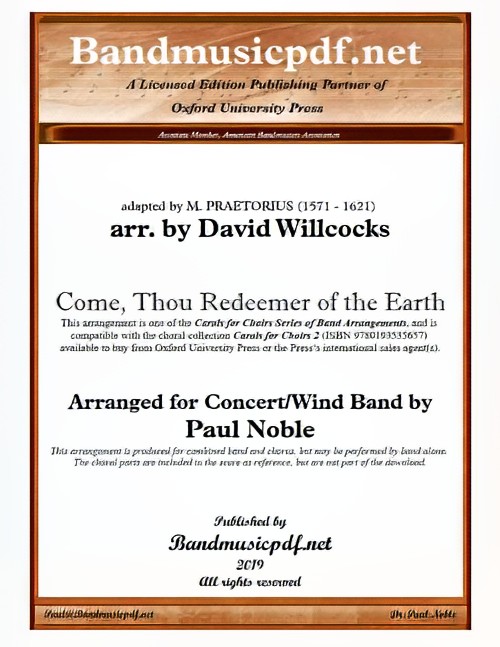 £75.00
£75.00Come, Thou Redeemer of the Earth (Concert Band with Optional Choir - Score and Parts) - Noble & Willcocks
Come, Thou Redeemer of the Earth is an Advent hymn with roots in a Latin hymn attributed to St. Ambrose of Milan (340 - 397), 'Veni Redemptor gentium.' It was translated into English by John Mason Neale in the middle of the nineteenth century and set to music from another old Latin hymn, 'Puer nobis nascitur' in the 17th century by Michael Praetorius (1571 - 1621). This arrangement represents one in the Series of Band Arrangements compatible with David Willcocks' Carols for Choirs. With eight verses (two of which may be omitted), it offers versatility in scoring, allowing the conductor to select the instrumental grouping for accompaniment as desired.
Estimated dispatch 7-14 working days
